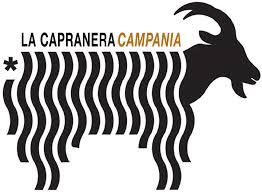Now internationally celebrated, the wines of Campania are produced from three ancient, local grape varieties – Fiano, Falanghina, and Aglianico – harvested from vineyards in the Capaccio-Paestum area of Campania in the province of Salerno, in the middle of the Cilento National Park. The Tyrrhenian Sea is located just a few miles away, and that proximity has a moderating effect on the region’s climate, producing excellent wines of exceptional ripeness and balance.
Indigenous to Campania, Falanghina, or Falanghina Greco, is known for its quite outsized character. Many believe that––along with Aglianico––the grape may have been a basis for the Falernum wine so revered in ancient Roman texts. The grapes for this bottling were grown on 16-year-old vines planted to clay and chalk soils with south-southwest exposure about 450 feet above sea level. The vineyard site in Capaccio-Paestum is in the province of Salerno just a few miles from the Tyrrhenian Sea. tropical notes and accents of banana; a splendid complement to fresh cheeses (Mozzarella di Bufala), and an excellent foil to shellfish and seafood
From vineyards with clay and chalk soils in Campania’s Capaccio-Paestum area in the middle of the Cilento National Park. Widely considered indigenous to Campania, Fiano is known for low yields and intense aromatics; some believe ancient Rome’s Apianum was created from Fiano. Fermented in stainless at low, controlled temperatures and then aged 8 months in tank. elegant bouquet, bright and very clean on the palate, white flowers, and pear with mineral notes
Aglianico was cultivated in ancient Greece, and then brought to Italy and used to produce the renowned Roman Falernum two thousand years ago. Flourishing in the sunny vineyards of Campania and Basilicata, the grape is known for producing age-worthy, muscular wines. La Capranera’s Aglianico vines average 16 years and enjoy south-southwest exposures. This bottling is 100% gently-pressed Aglianico fermented at low, controlled temperatures in stainless and then aged 8 months in tank before bottling. full-bodied, bursting with fresh red berry, nuances of curry and chocolate; fantastic accompaniment to strongly-flavored foods, particularly medium-aged cheeses and roasted or grilled meats


